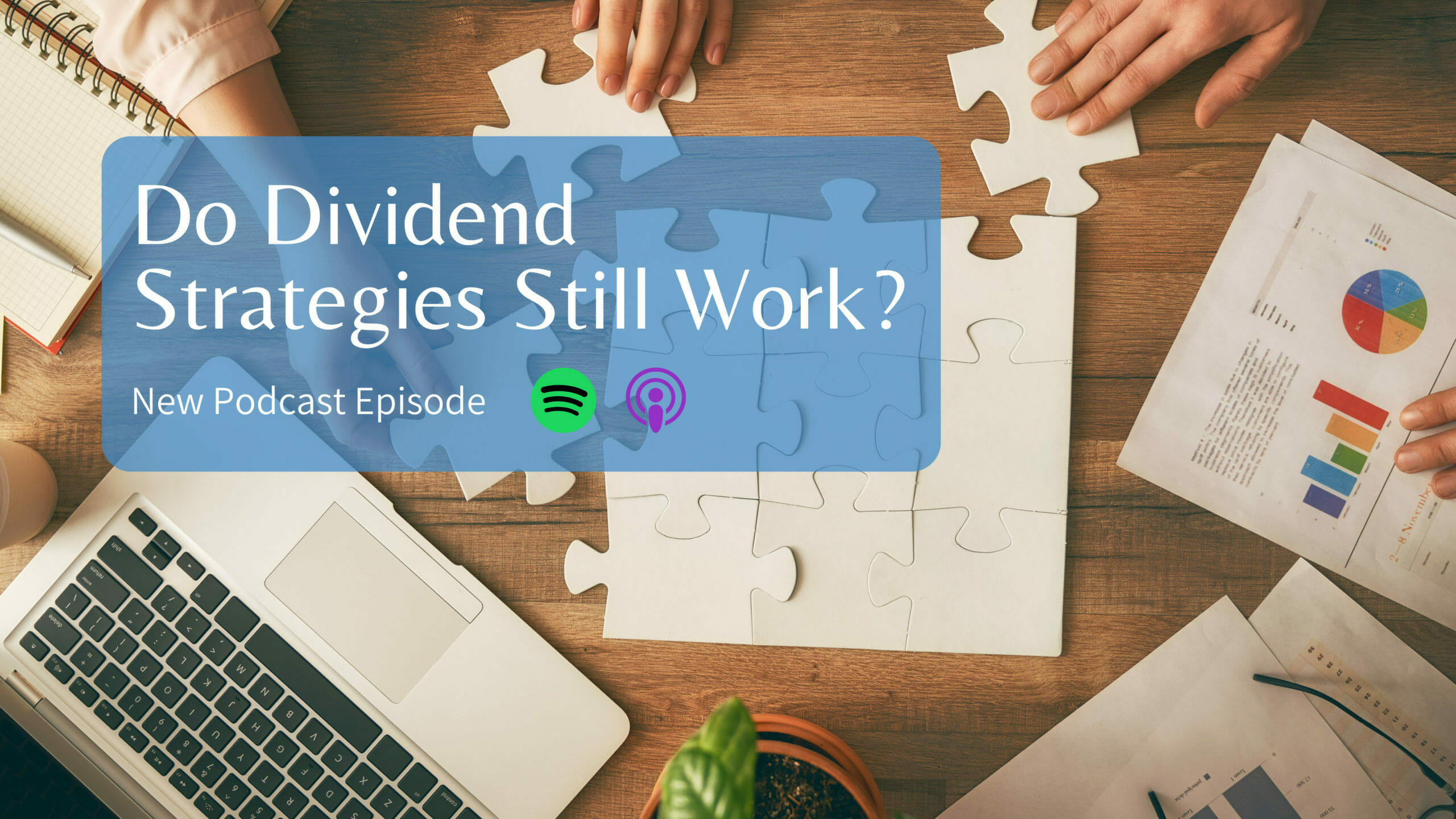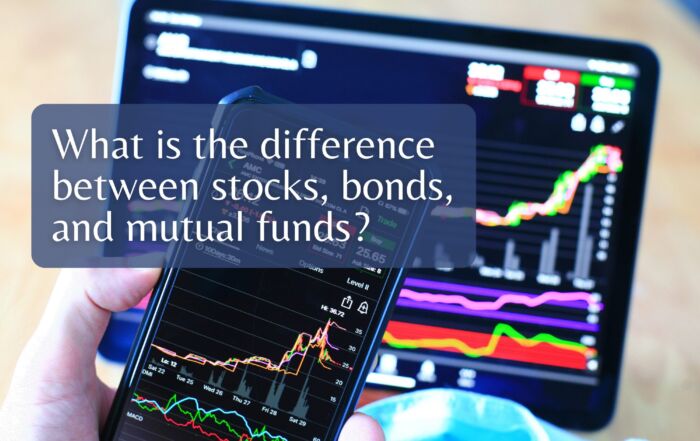
Do Dividend Strategies Still Work?
On this episode of A Wiser Retirement Podcast, Casey Smith, Matthews Barnett, CFP®, ChFC®, CLU® and Brad Lyons, CFP® talk about a few different dividend investment strategies. They explain what a dividend is, the risks associated with them, and give advice on how to manage them within your portfolio. It is important to understand the different dividend investment strategies so you can choose which one is the best fit for you.
Listen on Apple Podcasts or watch on YouTube:
SUMMARY:
What is a Dividend?
A dividend can be defined as the amount of money paid quarterly by a company to its shareholders. Most of the time, the biggest shareholders for these companies are institutions, pension funds, foundations, endowments, and insurance reserves. Keep in mind that for an individual, dividends act much differently because it takes a very large amount of income to produce an efficient dividend.
Dividend Strategies for a Retiree
As you begin to think through dividend strategies, it is important to understand what a dividend strategy is not. A common misconception is that a dividend strategy is the act of buying a company that pays out a dividend. Instead, a good example of a dividend investment strategy is putting together different sectors of the market to reach your goal. It’s also important to have two different strategies: a growth strategy and a high payout strategy. This will help you to better manage dividends within your portfolio and not deplete your principal in retirement.
Investing in a Healthy Company
Start by finding healthy companies to invest in. The biggest factor to look for in a healthy company is if they pay dividends from their net income. An unhealthy company consistently borrows money or uses their retained earnings to pay dividends, which is a sign the company is unsustainable. Another factor to watch for is the percentage of income the company is using to pay the dividend. The lower percentage of net income they need to pay the dividend, the healthier the company is. It is important to look for these qualities because investing in a healthy company can lead to a healthier portfolio.
Equity Dividends in Your Portfolio
Dividends are like free cash flow in your portfolio. They can be used for current consumption, or for other investments you may want to make in the future. To be in an equity dividend paying strategy, you are 100% invested in equities which is not a diversified portfolio. In the end, its much more volatile than a 60-40 portfolio. If you’re a retiree looking for a less risky investment, then equities may not be right for you. They tend to be very volatile and unpredictable.
Risks of Dividend Investing
Like most investing, there are risks associated to dividend investing. The three main risks associated to dividend investing are company risk, market risk, and interest rate risk. Because of this, you should tread carefully with investing in dividends and how you implement them in your portfolio. In today’s world, a dividend-only focus is considered to be value focused only. Unfortunately, value focused hasn’t done well in the past decade. Instead, have a diversified portfolio. This can help you set yourself up for financial success in retirement.
Download our white paper on “Your Pre-Retirement Checklist”
TIMESTAMPS:
0:00 Intro
1:57 What is a Dividend?
3:55 or 23:40 Dividend Strategies for a Retiree
7:47 Investing in a Healthy Company
12:00 Equity Dividends in Your Portfolio
29:09 Risks of Dividend Investing
LINKS:
Learn more about Casey Smith and connect with him on Twitter.
Learn more about Brad Lyons.
Learn more about Matthews Barnett.
CONNECT:
Twitter, Instagram, Facebook, LinkedIn, and YouTube.
Learn more about A Wiser Retirement podcast and access previous episodes.
Share This Story, Choose Your Platform!
Wiser Wealth Management, Inc (“Wiser Wealth”) is a registered investment adviser with the U.S. Securities and Exchange Commission (SEC). As a registered investment adviser, Wiser Wealth and its employees are subject to various rules, filings, and requirements. You can visit the SEC’s website here to obtain further information on our firm or investment adviser’s registration.
Wiser Wealth’s website provides general information regarding our business along with access to additional investment related information, various financial calculators, and external / third party links. Material presented on this website is believed to be from reliable sources and is meant for informational purposes only. Wiser Wealth does not endorse or accept responsibility for the content of any third-party website and is not affiliated with any third-party website or social media page. Wiser Wealth does not expressly or implicitly adopt or endorse any of the expressions, opinions or content posted by third party websites or on social media pages. While Wiser Wealth uses reasonable efforts to obtain information from sources it believes to be reliable, we make no representation that the information or opinions contained in our publications are accurate, reliable, or complete.
To the extent that you utilize any financial calculators or links in our website, you acknowledge and understand that the information provided to you should not be construed as personal investment advice from Wiser Wealth or any of its investment professionals. Advice provided by Wiser Wealth is given only within the context of our contractual agreement with the client. Wiser Wealth does not offer legal, accounting or tax advice. Consult your own attorney, accountant, and other professionals for these services.





